Book reviews archive
Mar. 6 Lent:
Muller, Wayne. Sabbath: Finding Rest, Renewal, and Delight in Our Busy Lives, 2000. Call no. 291.36 M958
In today's world, with its relentless emphasis on success and productivity, we have lost the necessary rhythm of life, the balance between work and rest. Constantly striving, we feel exhausted and deprived in the midst of great abundance. We long for time with friends and family, we long for a moment to ourselves.
Millennia ago, the tradition of Sabbath created an oasis of sacred time within a life of unceasing labour. Now, in a book that can heal our harried lives, Wayne Muller shows us how to create a special time of rest, delight and renewal - a refuge for our souls. We need not even schedule an entire day each week. Sabbath time can be a Sabbath afternoon, a Sabbath hour, a Sabbath walk. With wonderful stories, poems and suggestions for practice, Muller teaches us how we can use this time of sacred rest to refresh our bodies and minds, restore our creativity and regain our birthright of inner happiness. [From the book jacket]
Jan. 24:
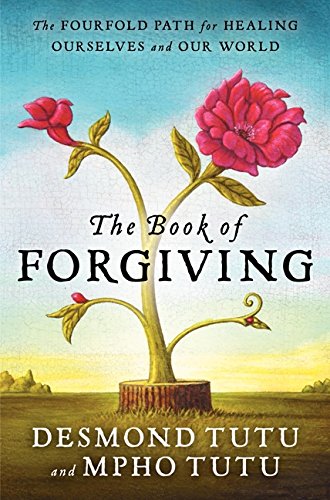 (Image courtesy of amazon.ca)
(Image courtesy of amazon.ca)
Tutu, Desmond Mpilo and Mpho A. Tutu. The Book of Forgiving: The Fourfold Path for Healing Ourselves and Our World. 2014. Call no.: 179.9 T967
Nobel laureate Archbishop Desmond Tutu has witnessed some of the worst crimes people can inflict on others. So wherever he goes, he inevitably gets asked this question. This book is his answer. Writing with his daughter, Mpho, an Anglican priest, they lay out the simple but profound truths about the significance of forgiveness, how it works, why everyone needs to know how to grant it and receive it, and why granting forgiveness is the greatest gift we can give to ourselves when we have been wronged. They explain the four-step process of forgiveness–Telling the Story, Naming the Hurt, Granting Forgiveness, and Renewing or Releasing the Relationship–as well as offer meditations, exercises, and prayers to guide the reader along the way. “With each act of forgiveness, whether small or great, we move toward wholeness,” they write. “Forgiveness is how we bring peace to ourselves and our world.”
Jan. 17:
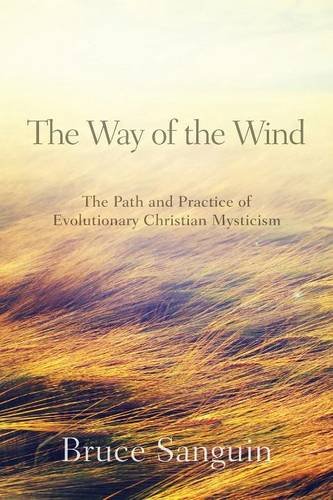 (Image courtesy of amazon.ca)
(Image courtesy of amazon.ca)
Sanguin, Bruce. The Way of the Wind: The Path and Practice of Evolutionary Christian Mysticism. 2015.
This book explores the Christian faith from the perspective of evolutionary spirituality. It looks at the life and teaching of Jesus through this lens. The author asserts that evolution is the fundamental dynamic of our universe, transcending biology, to include culture and consciousness. Jesus himself was tapped into a sacred evolutionary current to transcend, yet include, his own religious lineage. This urge for self and cultural transcendence therefore is an essential element of the Christian faith: there is no final iteration of the Christian faith. Everything, including the Christian faith, is in the process of transcending itself. When we realize the mystical awareness that we are the presence of a sacred evolutionary process awakening to itself, we catalyze the power of what traditionally has been called the Holy Spirit.
Jan. 10:
Born, Paul. Community Conversations: Mobilizing the Ideas, Skills, and Passion of Community Organizations, Governments, Businesses, and People. 2008. Call no.: 362.50971 B736
Communities around the world are entering a new era of community building. Whether improving economic conditions and reducing poverty, re-energizing citizens and social programs, reducing crime or revitalizing a troubled neighbourhood, they are engaging people from all sectors as never before to work together as equals to improve their quality of life. At the heart of this engagement are community conversations in which common goals are embraced by a diverse array of people with different backgrounds and needs, and influences are drawn from multiple sectors. Community Conversations captures the essence of creating such conversations and offers ten practical techniques to host conversations in your community.
Jan. 3:
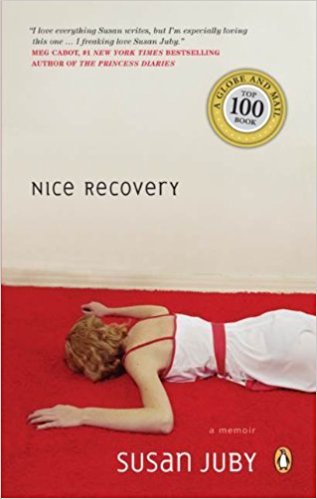 (Image courtesy of amazon.com)
(Image courtesy of amazon.com)
Juby, Susan. Nice Recovery. 2010. Call no.: 928.136 J91
Susan Juby started out as a bright, creative student with an innate ability to write incredible short stories. But at the age of thirteen her life began to unravel, and like many teens she turned to alcohol to get her through the awkward stages of searching for a unique identity. In this revealing memoir she details her painful and sometimes funny experiences on the road to sobriety at a time when most young adults were just starting their drinking careers. And through her interviews with recovering addicts and alcoholics she also looks at how the situation has changed for young people washing up on the shores of addiction today. Told with honesty and Juby’s dry wit, Nice Recovery is a candid memoir from one of Canada’s most beloved writers.
Dec. 27:
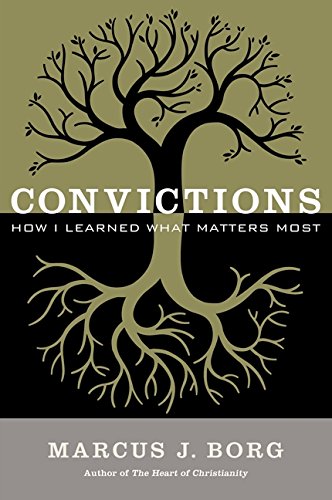 (Image courtesy of amazon.ca)
(Image courtesy of amazon.ca)
Borg, Marcus. Convictions: How I Learned What Mattered Most. 2014. Call no.: 230 B732
With each chapter embodying a distinct conviction, Borg writes provocatively and compellingly on the beliefs that can deeply ground us and guide us:
-
God Is Real and a Mystery
-
Salvation Is More About This Life Than an Afterlife
-
The Bible Can Be True Without Being Literally True
-
Jesus’s Death on the Cross Matters-But Not Because He Paid for Our Sins
-
God Is Passionate About Justice and the Poor
-
To Love God Is to Love Like God
Rich in wisdom and insight, Convictions is sure to become a classic of contemporary Christianity.
Dec. 20:
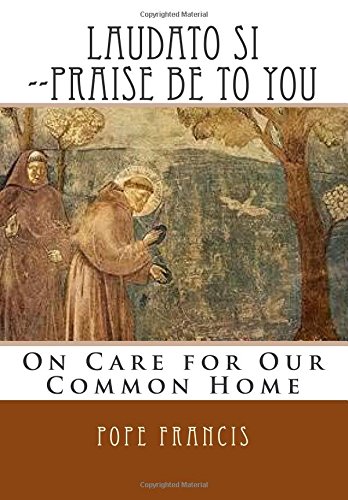 (Image courtesy of amazon.com)
(Image courtesy of amazon.com)
Francis, Pope. Praise Be to You: Laudato Si’: On Care of Our Common Home. 2015. Call no.: 201.77 F818
In this Encyclical Letter, Pope Francis examines such ecological concerns as pollution, waste, and what he calls “the throwaway culture”. Climate, he insists, is a common good to be protected. He explores notions such as sustainability from a Judeo-Christian perspective. The loss of biodiversity and the unequal distribution of resources, largely caused by the consumerism and excessive individualism of the wealthier nations, threaten the good order of creation. He cautions against an overreliance on science to solve ecological problems and emphasizes the need for openness to God.
Dec. 13:
Diffenbaugh, Vanessa. The Language of Flowers: A Novel. 2012.Call no.: F D569
First Met helps shelter youth during the winter months on Tuesday nights. Many of these young people are former foster children needing help finding their place in society.This novel explores why they can have trouble adjusting, and what can help them become successful.
Dec. 6:
Armstrong, Karen. Islam: A Short History. 2000. Call no.: 297.09 A736
No religion in the modern world is as feared and misunderstood as Islam. It haunts the popular imagination as an extreme faith that promotes terrorism, authoritarian government, female oppression, and civil war. In a vital revision of this narrow view of Islam and a distillation of years of thinking and writing about the subject, Karen Armstrong’s short history demonstrates that the world’s fastest-growing faith is a much more complex phenomenon than its modern fundamentalist strain might suggest.
Contact Info
Office Hours
-
Prayer Connections: prayer@broadviewunited.com
Broad View United
- 3703 St. Aidan's St.
- Victoria, BC
- V8P 2V7 Canada
